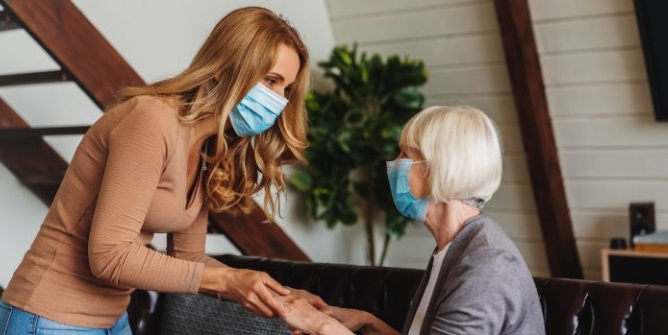
WFH: Specific Risks of COVID-19 to the Bleeding Disorders Community
The COVID-19 Task Force of the World Federation of Hemophilia (WFH) has released a statement on risks of acquiring COVID-19 disease and specific risks this infection presents to those with a bleeding disorder. Key takeaways are summarized below. The full news announcement includes sources at the Centers for Disease Control (CDC), World Health Organization (WHO), and the Hemlibra website.
READ FULL STATEMENT ON THE WFH WEBSITE
SUMMARY
Risks of acquiring SARS-CoV-2 (the virus) and COVID-19 (the disease)
-
No increased susceptibility to infection has been found in immunocompetent patients with bleeding disorders. (Source: WHO)
-
There is no information about whether persons with HIV are at increased risk of acquiring the infection. (Source: CDC)
Risks if you have COVID-19 infection AND a bleeding disorder
-
COVID-19 is a potentially deadly infection that causes a spectrum of disease, from asymptomatic to severe pneumonia and lethal systemic sequelae. Risk factors include other systemic diseases including hypertension, diabetes, cardiovascular disease, and immunosuppression. (Source: CDC)
-
As COVID-19 progresses, coagulation pathways are activated as part of the host inflammatory response to limit the viral infection.
-
More severe COVID-19 disease may lead to overt disseminated intravascular coagulation (DIC), associated with high mortality.
-
Close monitoring for bleeding and thrombosis is recommended for all individuals who progress with signs or symptoms of DIC.
-
Anticoagulants are being recommended as part of treatment protocols for patients with elevated D-dimers and severe infection. Use of anticoagulants should be accompanied by factor replacement therapy.
-
Should a thrombotic event occur in a hemophilia patient, detailed reporting is important (including COVID status, laboratory assessments, imaging, replacement therapy).
-
-
If COVID-19 is diagnosed, prophylaxis with factor replacement therapy should be continued, and if hospitalized for severe infection, higher trough levels may need to be considered as if treating major trauma.
-
The risk of thrombotic complications for hemophilia patients who are currently treated with non-factor replacement therapies including emicizumab or other investigational agents (e.g. fitusiran, anti-TFPI) is unknown in the presence of COVID-19 infection.
-
Anticoagulants may be considered as per recommended treatment protocols.
-
Be aware that some one-stage coagulation assays, such as aPTT, which is often used to diagnose and monitor patients in DIC, overestimate coagulation in patients on emicizumab and thus may mask coagulopathy.
-
In patients with FVIII inhibitors receiving emicizumab, extra precautions should be taken if a patient requires aPCC due to the known drug-drug interaction between emicizumab and aPCC. (Source: Hemlibra)
-
For patients participating in a clinical trial of gene therapy, in addition to caution regarding infection risk when immunosuppressed, as outlined in the WFH’s Practical Recommendations for People with Hemophilia, supplementation to higher coagulation factor levels (e.g. as if treating major trauma) could be considered in those who have had a suboptimal response to the gene therapy.
-
Patients with bleeding disorders of all severities and COVID-19 should be eligible for all available therapies that would be required depending on their condition (e.g., ventilation support, ECMO, hemofiltration). Having hemophilia should not exclude individuals from invasive management of COVID-19. (Source: WFH)
(UPDATE 4/6/20, original release date 4/2/20)
Source: The Coalition for Hemophilia B and the World Federation of Hemophilia